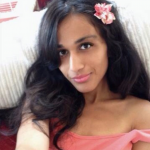Growing up, we hear aunties and uncles boast about and compare their children’s grades, looks, and other signs signaling a promising future of social status. And as we get older, everything is up for comparison—the amount of money we make, the career we embark on, the lives we show to the world on social media, and even the ones we love.
The expectations are always rising and our self-worth is always plummeting. Sometimes, it feels like we are never enough.
Undoubtedly, being a young South Asian woman in the U.S. poses unique pressures and challenges. There is the pressure to live up to the usual unhealthy mainstream standards of female perfection, but then there are also many cultural expectations to uphold to.
Combined, it amounts to a silent understanding that to be an acceptable South Asian young woman in the U.S. often means to value being a somebody over simply oneself.
While all women from all backgrounds do struggle with this internal struggle, this is an issue that is increasingly becoming more and more problematic for our demographic.
According to a report in India West, young South Asian women in the U.S. have a higher suicide rate than the general U.S. population.
As the article delves into, many reasons account for this high figure, from anxiety, cultural stigma, to greater racial and social issues affecting South Asian communities.
As Aruna Rao, associate director of the New Jersey chapter of the National Association on Mental Illness, said, “We are the model minority, so there’s no one to talk to.”
Clearly, mental health is still an unexplored issue, not talked or written about enough. And that’s why I’m happy to launch a new section on Brown Girl, dedicated to promoting mental health among young South Asian women.
I hope to initiate conversation not just about the mental health crisis in our communities, but also, about what it means to be a psychologically healthy, self-compassionate South Asian female.
What does she look like?
How does she live?
What can we do to help our culture nurture and support her emotional growth?
These are important questions to ponder because, at the end of the day, this isn’t just an issue about mental health. This is a South Asian feminist issue as well. We may have achieved a lot of admirable socioeconomic success in the West, but our young women are suffering because of the lack of attention paid to psychological empowerment in our close-knit communities.
[Read Related: What My Bipolar Disorder Taught Me]
Moreover, in the West, female empowerment often equates itself with professional power and success. But how true and healthy is that definition of empowerment for us South Asian women, when the pressure to be perfect and attain social status is one of the things leading us to dehumanize ourselves and end our own lives? There’s clearly more to female empowerment than just the professional aspect of one’s life.
So, let’s start talking about that.
I’ve known many, including myself, who have struggled to maintain positive mental health as a result of many of our unique cultural struggles. From a firsthand, I know that many of my problems deepened and I could have gotten better faster if there was less stigma, education, and women like me openly talking about their lives.
I’m hoping to break this cycle of silence by talking about my own journey towards an emotionally healthy life, what I’ve learned, and what works for me.
For example, I’ll be writing about my own journey replacing unhealthy perfectionist attitudes for a healthier mindset through my creativity–specifically, the designs I create and sell on the Etsy showroom, called HerSoulExpression.
The name is purposefully referring to self-expression, reflecting the healthier values I aspire to embody of authenticity, individuality, and being okay with failing and learning. It’s about the journey of growth rather than outcome–a celebration of taking up new things, trying and failing (because, for me, I neglected my artistic side for years in fear of being mediocre), but getting back up, learning, and trying again has changed my life for the better.
Beyond writing about my own journey, however, I will also promote individuals and initiatives that seek to promote psychologically healthy attitudes and ways of living.
Specifically, I will write about:
- Resources to help and inspire you. Believe it or not, there is help for South Asians living in the Diaspora—from nonprofits, e-books, community groups/centers, counselors to websites like Brown Girl, HumanologyProject.com, Masalamommas.com and India.com.
- With the unique issues South Asian young females struggle with, we hope to offer tips from professionals, activists, and young women facing mental health stigma in their communities. We will continue to publish more stories that inspire emotionally healthy lives. Feel free to also contribute your own stories, ideas, experiences, and tips.
Here’s to breaking the cycles of suicide and silence. No, you’re not alone. And yes, it can and it will get better. Join us as we eliminate the taboo associated with mental health.
 Sheena Vasani graduated with a degree in International Relations from UC Berkeley. She is a self-described compassion, gender liberation, and mental health activist, and has worked with various social justice initiatives, including V-Day. In her free time, she ironically enjoys exploring various religions, cultivating her creativity, and cuddling her kitten. You can follow her on Twitter, and on her personal blog.
Sheena Vasani graduated with a degree in International Relations from UC Berkeley. She is a self-described compassion, gender liberation, and mental health activist, and has worked with various social justice initiatives, including V-Day. In her free time, she ironically enjoys exploring various religions, cultivating her creativity, and cuddling her kitten. You can follow her on Twitter, and on her personal blog.




